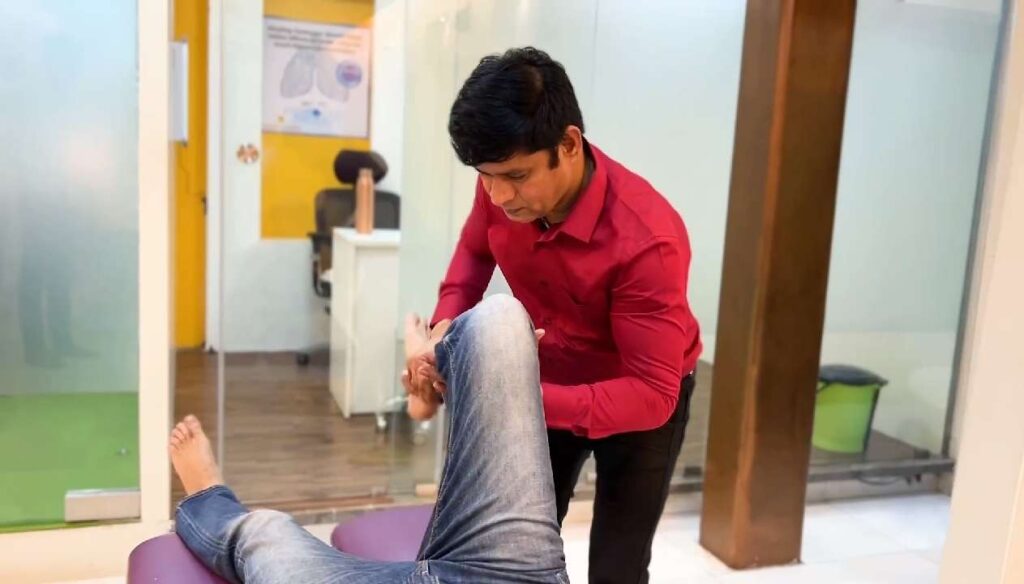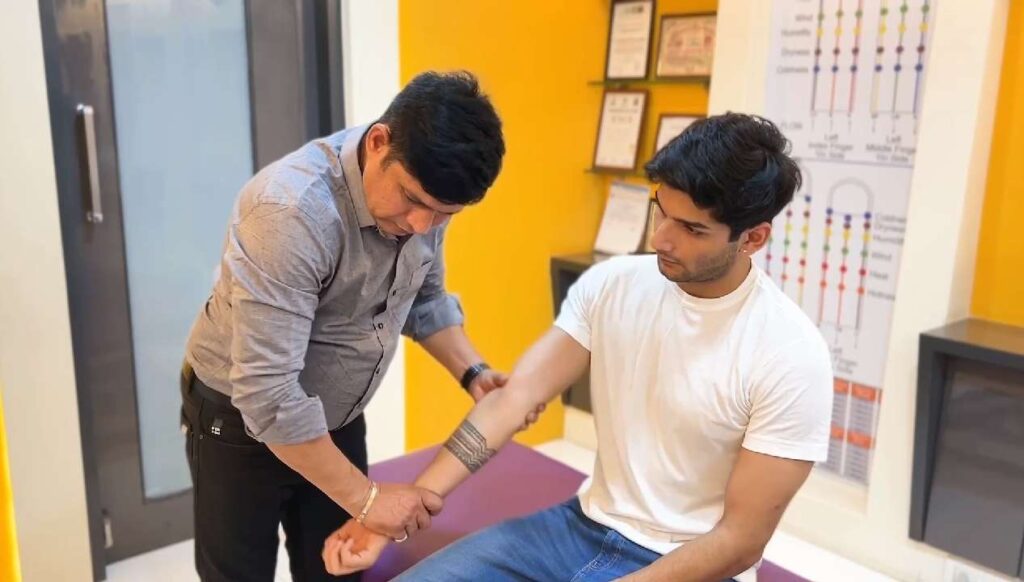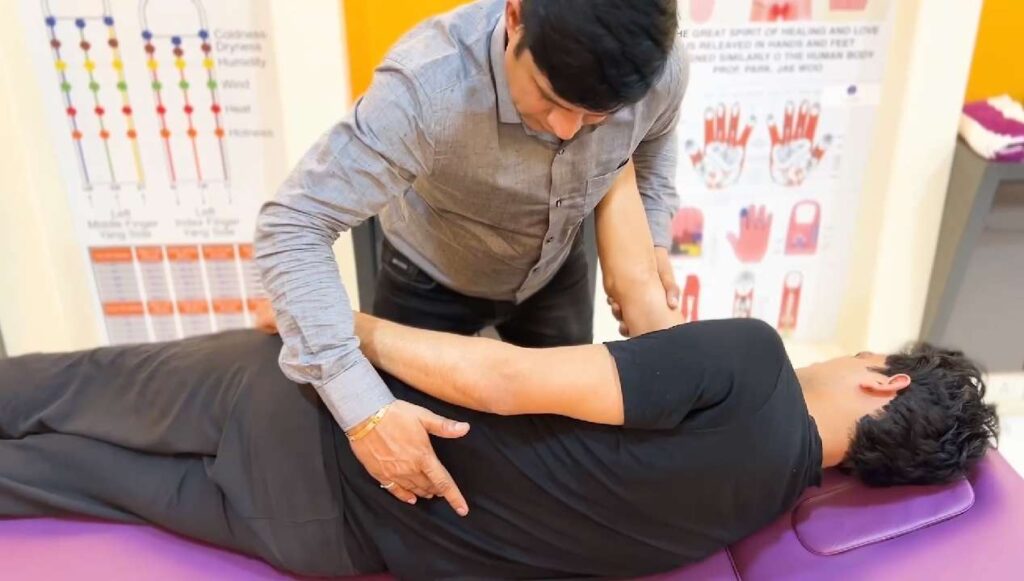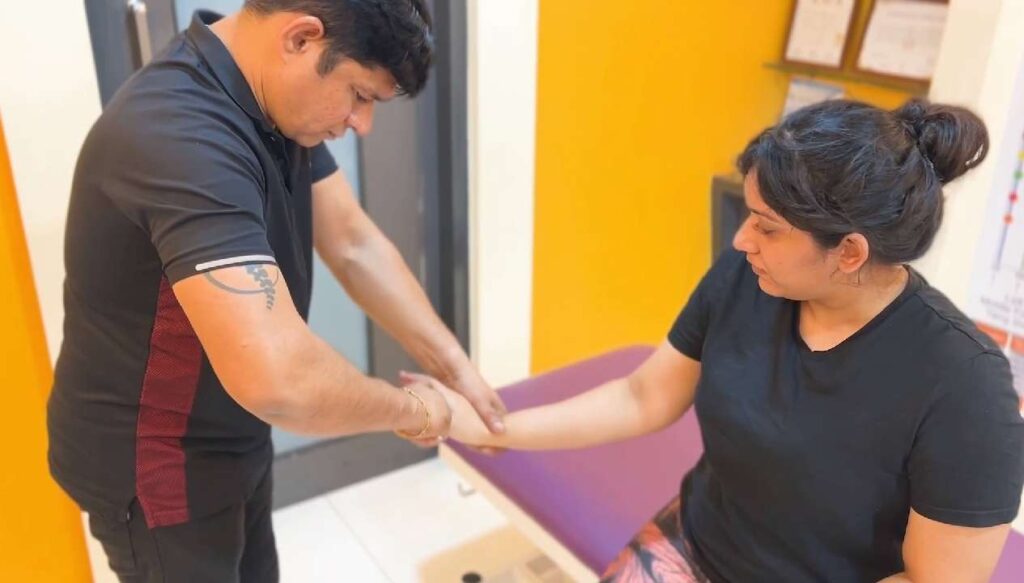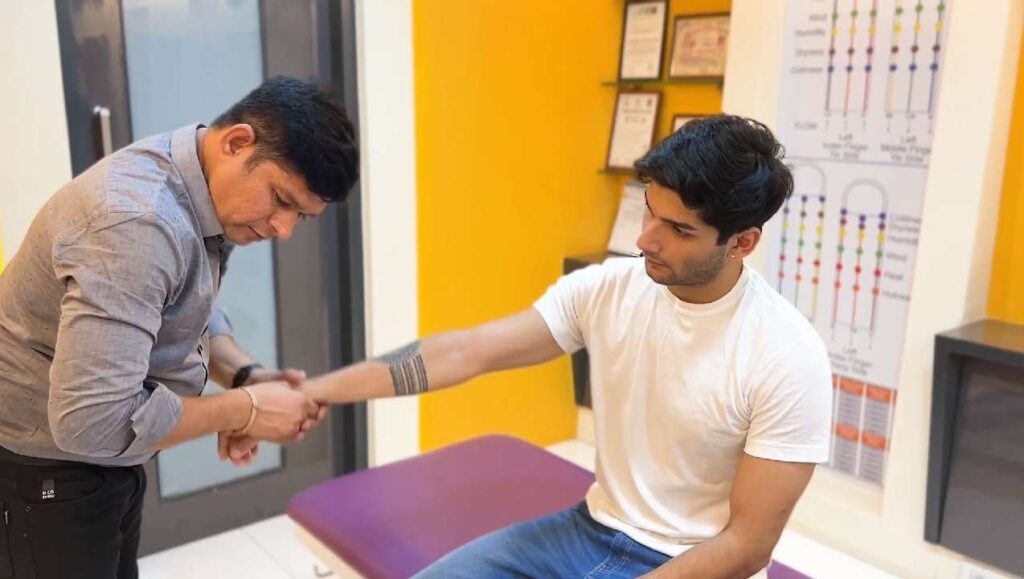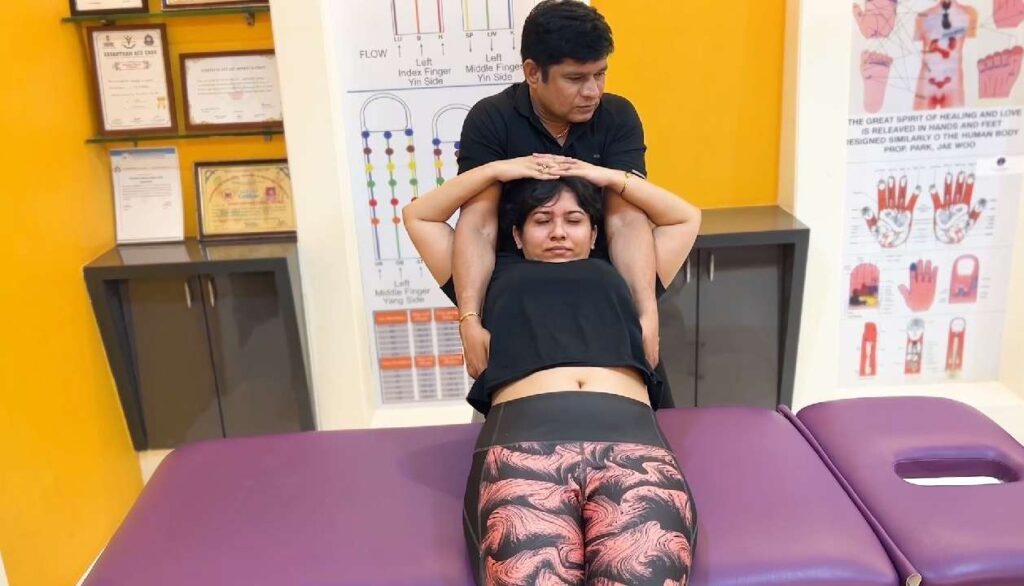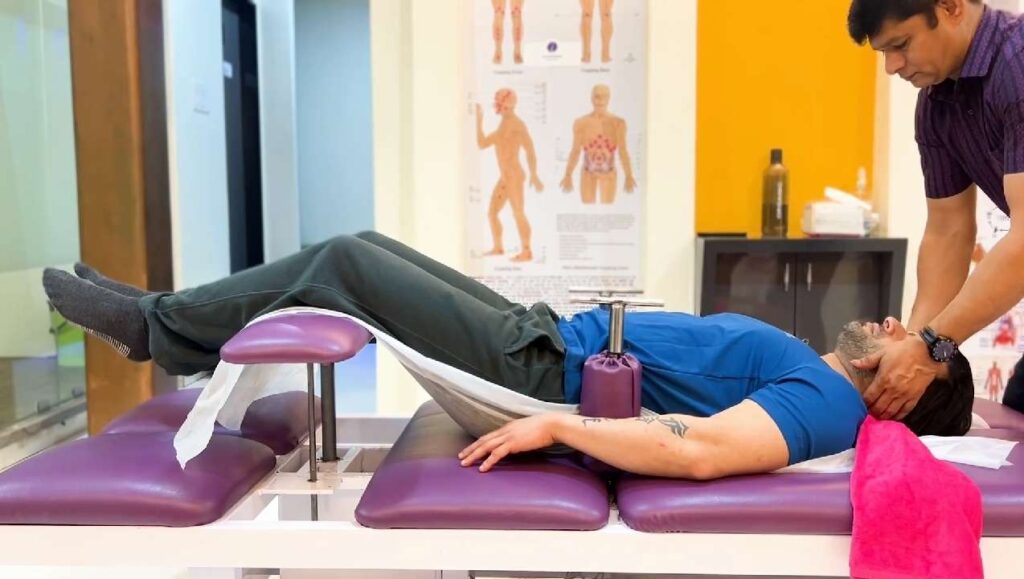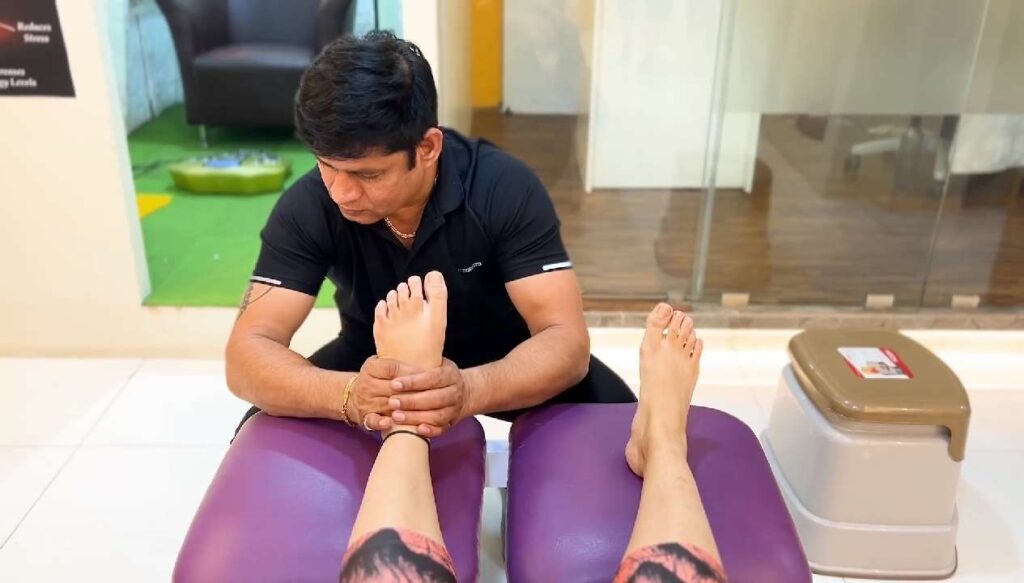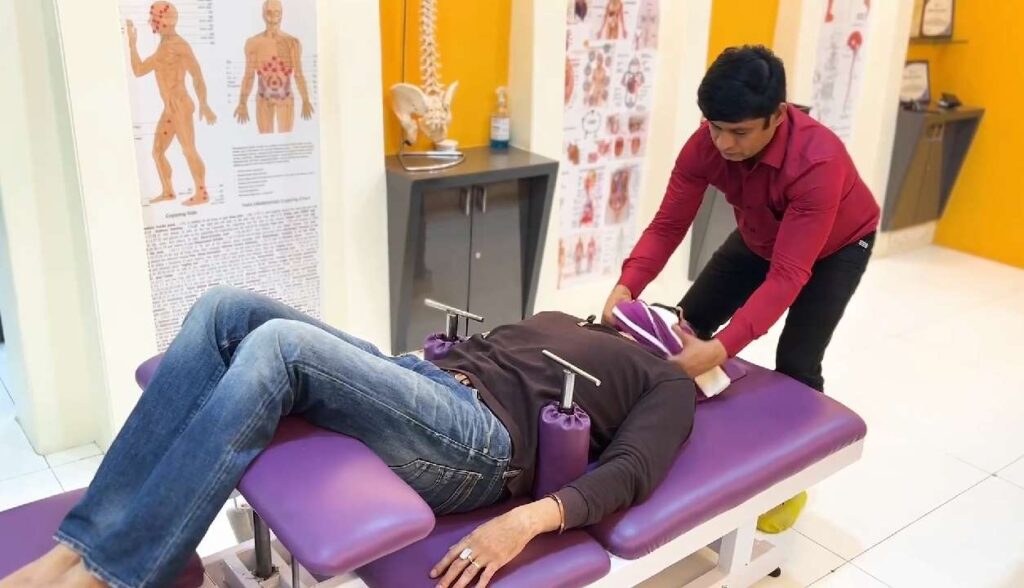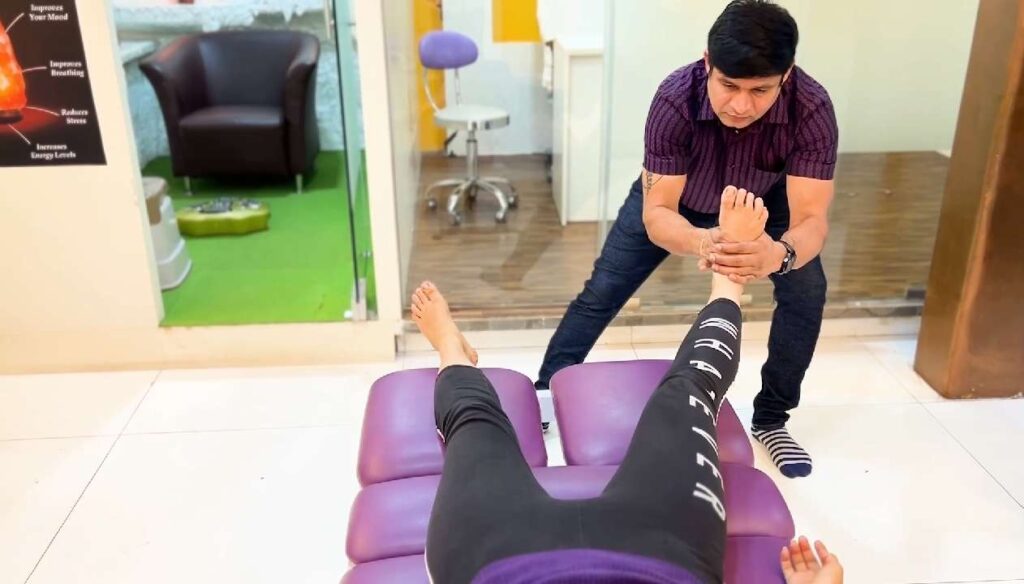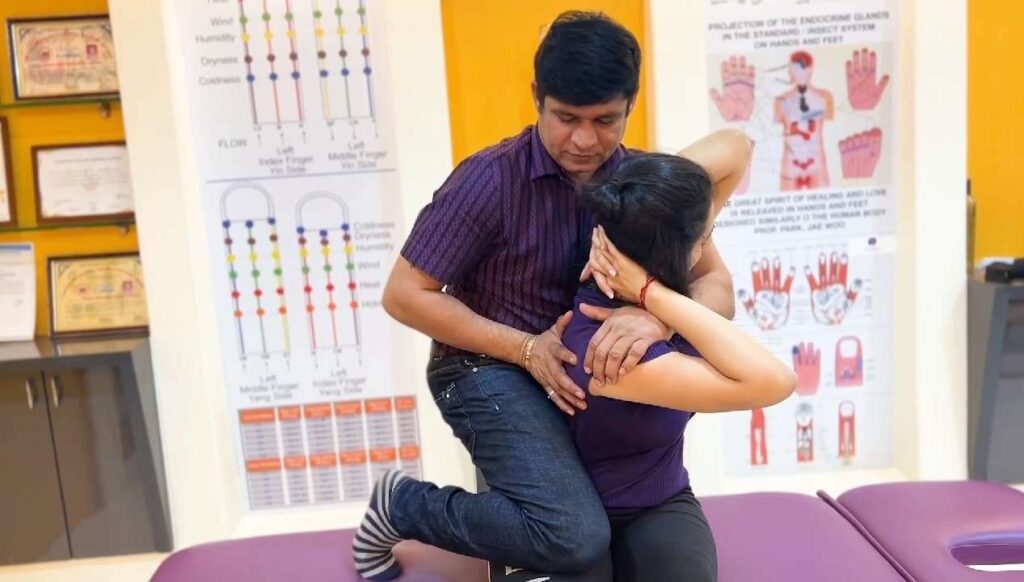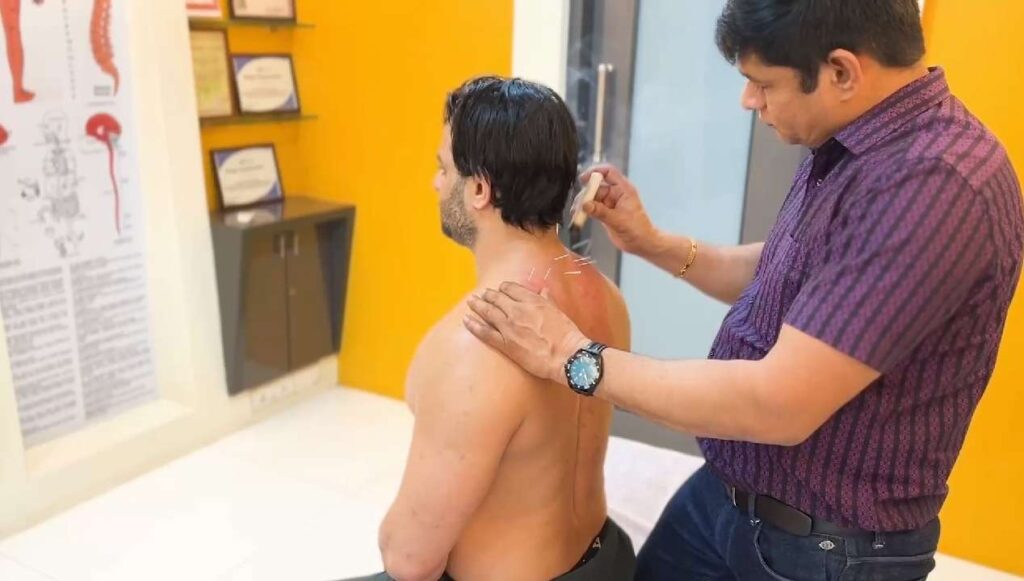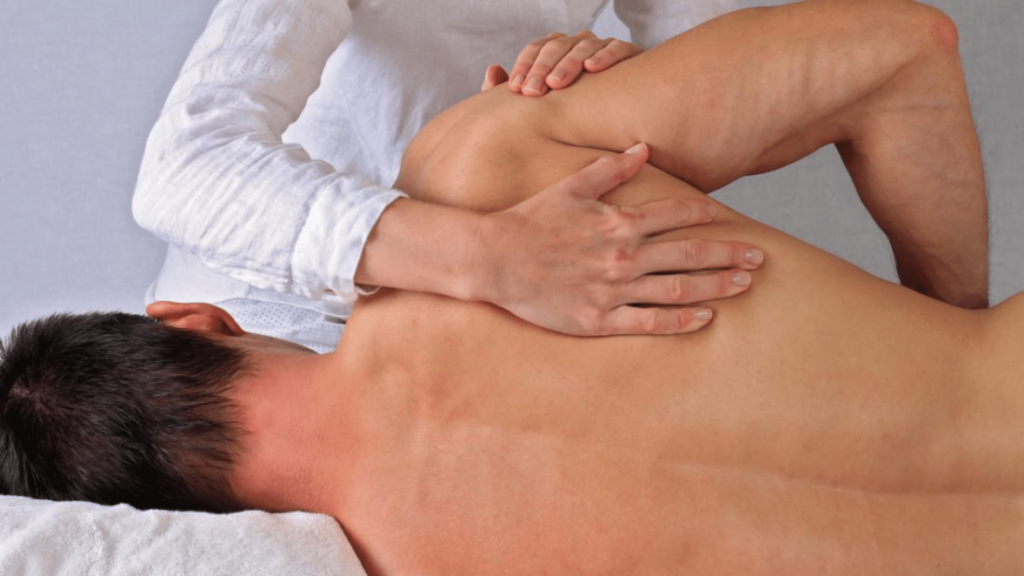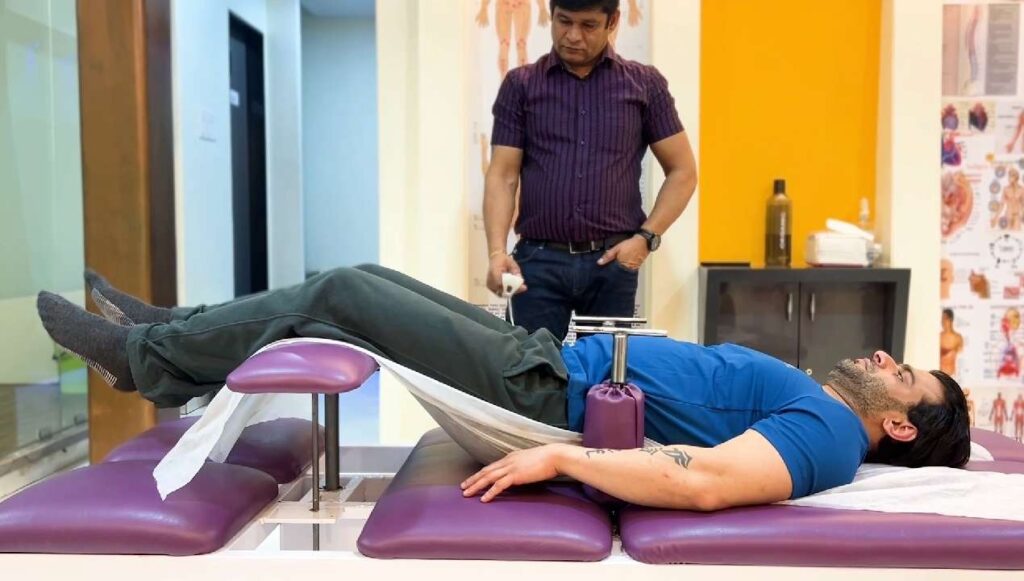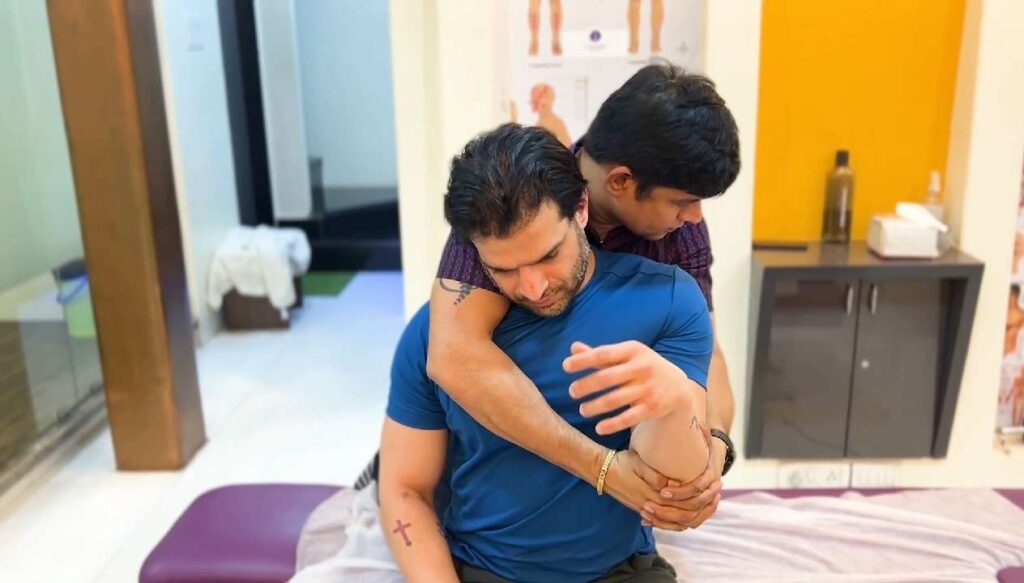Chiropractor
Knee Pain Treatment in Thane
Services Offered By Dr. Ravi Shinde
People Also Ask?
(FAQs About Knee Pain Treatment)
Q1: How do I know if I need professional treatment for my knee pain?
If you experience persistent pain, swelling, stiffness, or difficulty walking, it’s best to consult a specialist. Ignoring knee pain can lead to long-term joint damage or mobility issues. A doctor can diagnose the root cause and suggest the right treatment.
Q2: What treatment options are available for knee pain?
Treatment varies depending on the cause and severity. It may include physiotherapy, medication, lifestyle changes, knee injections, or in severe cases, surgery. A specialist will guide you on the best course of action.
Q3: Is knee pain treatment safe and effective?
Yes, modern knee pain treatments are safe and effective when administered by experienced professionals. Non-invasive treatments like physiotherapy and injections provide excellent relief, and surgical options are now minimally invasive with faster recovery times.
Q4: How long does it take to recover from knee pain?
Recovery time depends on the treatment method and the individual’s condition. Mild knee pain can improve within a few weeks with proper care, while severe cases may take a few months. Following the doctor’s advice can speed up recovery.
Q5: Will I be able to walk normally after knee treatment?
Yes, with the right treatment and rehabilitation, most patients regain normal mobility. If surgery is required, physiotherapy ensures a smooth recovery, helping you walk comfortably again.
Testimonials
Ayush Sheikh
"The best decision I made was choosing this clinic for my knee pain. The treatment was effective, and the doctor explained everything in detail. I can now walk pain-free without any discomfort!"
Venkatesh Iyer
"I had severe knee pain due to arthritis. The customized treatment plan worked wonders, and the exercises they recommended helped a lot. Very professional and caring team!"
Dhruv Shah
"I was skeptical at first, but after a few sessions, I saw remarkable progress. The staff is knowledgeable and supportive. My knee pain has reduced drastically!"
Smita Joshi
"I used to struggle with knee pain while climbing stairs. After treatment, I feel much better and can move freely. The doctor and physiotherapy sessions were extremely helpful!"
Rohan Patil
"I was struggling with knee pain for months, and it was affecting my daily life. After starting treatment here, I feel a huge improvement. The doctor was very patient and guided me well. Highly recommended!"
Blogs Related To Knee Pain Treatment In Thane
1. "Knee Pain Myths vs. Facts: What You Need to Know"
Introduction:
Knee pain is a common issue, but many misconceptions prevent people from getting the right treatment. Let’s debunk some common myths and uncover the facts.
Main Body:
Myth: “Only older people get knee pain.” Fact: Young adults and athletes also suffer from knee issues due to injuries or lifestyle choices.
Myth: “Resting too much will heal knee pain.” Fact: Controlled movement and physiotherapy help faster recovery.
Myth: “Surgery is the only solution for severe knee pain.” Fact: Many non-surgical treatments can effectively manage pain.
Conclusion:
Understanding the truth about knee pain helps you make informed health decisions. Consulting a specialist ensures the right treatment.
2. "Best Exercises to Strengthen Your Knees and Prevent Pain"
Introduction:
Weak knee joints are prone to pain and injuries. Strengthening exercises can improve mobility and reduce discomfort.
Main Body:
Low-Impact Cardio: Walking, swimming, and cycling help build knee strength.
Stretching Exercises: Hamstring and quadriceps stretches improve flexibility.
Strength Training: Squats, leg raises, and resistance band exercises support knee stability.
Balance and Stability Workouts: Yoga and pilates reduce stress on knee joints.
Conclusion:
Regular knee-friendly exercises keep joints healthy. However, always consult a doctor before starting a new workout routine.
3. "When Should You See a Doctor for Knee Pain?"
Introduction:
Occasional knee pain is common, but when should you seek medical help? Knowing the warning signs can prevent serious issues.
Main Body:
Persistent Pain: If pain lasts more than a few weeks, professional evaluation is necessary.
Swelling and Stiffness: Chronic inflammation can indicate arthritis or other conditions.
Difficulty Walking or Climbing Stairs: Mobility issues should not be ignored.
Pain After an Injury: Sudden injuries need immediate medical attention to prevent long-term damage.
Conclusion:
Ignoring knee pain can lead to complications. Consulting a specialist at the right time ensures faster recovery and better joint health.
4. "Non-Surgical Knee Pain Treatments That Actually Work"
Introduction:
Many people fear surgery for knee pain, but several effective non-surgical treatments can relieve discomfort and restore movement.
Main Body:
Physiotherapy: Strengthens muscles around the knee and improves mobility.
Pain-Relief Injections: Corticosteroids and hyaluronic acid injections reduce inflammation and provide lubrication.
Lifestyle Modifications: Weight management and posture correction reduce strain on knees.
Medications & Supplements: Anti-inflammatory medicines and supplements like glucosamine help manage pain.
Conclusion:
Non-surgical treatments are highly effective for most knee conditions. Consulting a specialist helps determine the best approach for you.
5. "How Your Diet Affects Knee Pain: Foods to Eat & Avoid"
Introduction:
Your diet plays a crucial role in joint health. Certain foods reduce inflammation, while others may worsen knee pain.
Main Body:
Foods to Eat:
Omega-3-rich foods (salmon, walnuts) reduce inflammation.
Leafy greens and citrus fruits provide joint-supporting vitamins.
Turmeric and ginger have natural anti-inflammatory properties.
Foods to Avoid:
Processed and fried foods increase inflammation.
Excess sugar leads to weight gain and joint stress.
Red meat and dairy may trigger pain in some individuals.
Conclusion:
A balanced diet supports knee health and reduces pain. Combining proper nutrition with medical treatment ensures long-term relief.
We Serve in Following Locations
Andheri
- Vertigo Treatment in Andheri West
- Tennis Elbow Treatment in Andheri West
- Osteopathy Treatment in Andheri West
- Nerve Pain Treatment in Andheri West
- Neck Pain Treatment in Andheri West
- Muscle Pain Treatment in Andheri West
- Migraine Treatment in Andheri West
- Lumbar Spondylosis Treatment in Andheri West
- Lordosis Treatment in Andheri West
- Knee Pain Treatment in Andheri West
- Herniated Disc Treatment in Andheri West
- Heel Pain Treatment in Andheri West
- Headache Treatment in Andheri West
- Frozen Shoulder Treatment in Andheri West
- Finger Pain Treatment in Andheri West
- Cervical Spondylosis Treatment in Andheri West
- Arthritis Treatment in Andheri West
- Ankle Pain Treatment in Andheri West
- Chiropractic Treatment in Andheri
- Back Pain Treatment in Andheri West
- Ankle Pain Treatment in Andheri
Thane
- Vertigo Treatment in Thane
- Tennis Elbow Treatment in Thane
- Slipped Disc Treatment in Thane
- Osteopathy Treatment in Thane
- Nerve Pain Treatment in Thane
- Neck Pain Treatment in Thane
- Muscle Pain treatment in Thane
- Migraine Treatment in Thane
- Lumbar Spondylosis Treatment in Thane
- Lordosis Treatment in Thane
- Knee Pain Treatment in Thane
- Herniated Disc Treatment in Thane
- Heel Pain Treatement in Thane
- Headache Treatment in Thane
- Frozen Shoulder Treatment in Thane
- Finger Pain Treatment in Thane
- Cervical Spondylosis Treatment in Thane
- Back Pain Treatment in Thane
- Arthritis Treatment in Thane
- Ankylosing Treatment in Thane
- Ankle Pain Treatment in Thane

